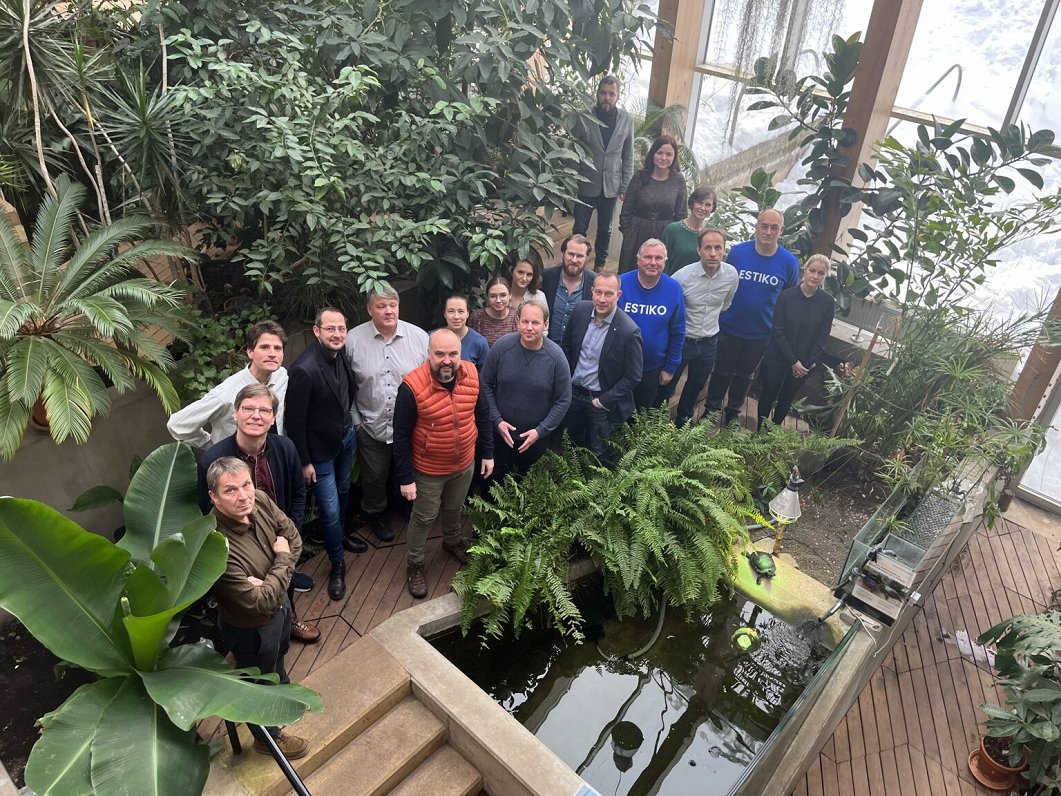The “Supporting the Regional Development of the Green Hydrogen Fuel Value Chain for Transportation in Estonia and Latvia” (H2Value) project will establish the first inter-regional green hydrogen value chain in South Estonia (Tartu) and Northern Latvia (the Vidzeme region).
As freight transportation and car ownership continue to grow and the transport sector remains one of the largest sources of greenhouse gas (GHG) emissions in the European Union, solutions to make vehicles more efficient and promote the wider use of low and zero-emission vehicles are high on the agenda. Replacing existing cars with electric vehicles is often cited. In Latvia, for example, residents can receive financial support towards buying a new or second-hand electric car or a new externally chargeable hybrid car. However, in many parts of the world, hydrogen is slowly taking steps towards becoming the fuel of the zero-emission future.
Aims to establish green hydrogen production plant
The H2Value project kicked off at the end of 2022. Its main goals are to establish a small-scale solar-powered green hydrogen production plant in the Tartu region, establish a green hydrogen refuelling station and test the feasibility of transporting green hydrogen by road to be used as a fuel source for specially adapted cars.
Green hydrogen, also known as clean or renewable hydrogen, gets its name from the electrolysis of water into hydrogen and oxygen, using solar and wind power. Crucially, the process does not produce greenhouse gases. “Technology- and export-intensive sustainable renewable energy production is a priority area for smart specialisation in the Vidzeme region, and one of our tasks is to ensure that new models and systems for renewable energy are developed and implemented,” says Laila Gercāne, Head of the Development and Projects Department of the Vidzeme Planning Region.
In Europe, the Northern Netherlands region has set itself the goal of becoming a ‘Hydrogen Valley’ by 2026. This means that it aims to consolidate the entire hydrogen value chain in its borders, from production, transport and storage to the use of hydrogen to generate electricity, heat homes, ensure manufacturing and transport services. However, for smaller regions, this alternative energy source poses a number of challenges due to a lack of knowledge on how to use it safely in the transport sector. The high cost of the technology needed to produce green hydrogen for small consumption volumes is a major aspect. Another is the lack of necessary infrastructure. The first step that the project partners agreed on is to devise an international green hydrogen energy system development plan to calculate the costs of the technologies required to produce green hydrogen, store and transport it, which will form the final price per kilogram of the hydrogen itself.
The H2Value team from Latvia consists of the Latvian Hydrogen Association, waste management company ZAAO and the Vidzeme Planning Region. Estonia is represented by Tartu Municipality (lead partner), the Baltic Innovation Agency, the electricity company ESTIKO Elekter, Estonian Association of Hydrogen Technologies, and the fuel company Alexela. From the Netherlands, the New Energy Coalition will contribute to the project and share its experience.
The H2Value project has received funding from the European Union under grant agreement No. 101083881.
Project complements recent MoU
Other stakeholders too are exploring hydrogen as a possible path to decarbonisation. Recently, on the occasion of the 5G Techritory Forum in Riga, local industry players signed a Memorandum of Understanding (MoU) on the development of hydrogen technology in Latvia. The MoU aims to promote the development of a strong and cohesive hydrogen ecosystem and related technologies, as well as to accelerate the uptake and capacity of hydrogen innovation, infrastructure, production and applications in Latvia, enabling the hydrogen industry to develop in line with the objectives set by the EU, contributing both to the Latvian economy and to the achievement of climate goals.
This story was originally published by Labs of Latvia and is reproduced by kind permission.
























